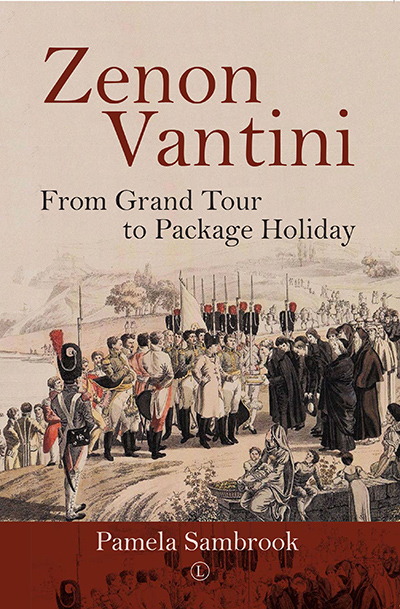Description
In this remarkable study, Pamela Sambrook rescues from obscurity the contribution of a former member of Napoleon’s Imperial Guard to the development of specialist hotels and catering in the formative years of the railway network in England and France. In doing so, she interrogates what lies behind some of Zenon Vantini’s very real achievements, legacies and disasters. She asks how far he was driven by his familial background in Elba and his involvement in the political turmoil of early-nineteenth century France, and to what extent his whole life was known to those around him.
Vantini’s extraordinary life encapsulates the change between two very different worlds – the old imperial past and the new age of entrepreneurial risk-taking. Never shaking off his old political loyalties, he believed resolutely that the mobility afforded by railway travel would change Europe fundamentally. In the long view he was a component part in the very early years of an industry which revolutionised England and Europe more than did even his hero, Napoleon. Scholars and general readers of British and European social history will be fascinated by his untold story.
About the Author
Pamela Sambrook is a former museum curator and distinguished researcher into country-house domestic offices and the lives of the servants who worked in them. She has now retired from consultancy to the National Trust, English Heritage and private owners, and from teaching adult education. She is currently an Honorary Research Fellow at Keele University.
Contents
List of Illustrations
Abbreviations
Sources and Acknowledgements
Preface: Writing During a Pandemic
Zenon Vantini’s Family Tree
1. Who Was Zenon Vantini?
Part 1: Great Houses, 1825-1840
2. Extravagant Housekeeping
3. Changing from Road to Rail
Part 2: Grand Hotels, 1839-1870
4. The Birth of Railway Hotels – the Euston and the Victoria
5. The North Euston Hotel, Fleetwood
6. The Dangers of Railway Refreshment Rooms – Wolverton
7. The Doorstep to France and the North East of England
8. The Birth of the Foreign Package Holiday
Part 3: Elba, Napoleon and Waterloo, 1797-1815
9. Elba, the Vantinis and the Arrival of Napoleon
10. Napoleon’s Houses and Administration
11. The Vantinis During Napoleon’s Exile
12. To Waterloo
Part 4: Interludes, 1815-1832
13. Vantini after Waterloo and the July Revolution of 1830
Part 5: Vantini, a Whole Life, 1797-1870
14. Zenon’s Daughters
15. Vantini’s Achievements and Finance
16. What Sort of Man?
Appendix: Translations of extracts from Vantini’s dossier at the Service Historique de la Defense
Endnotes
Acknowledgements of Illustrations
Bibliography
Index
Endorsements and Reviews
Zenon Vantini grasped the opportunities presented by political and economic developments in nineteenth-century Europe in a truly exemplary fashion. On his native Elba, he encountered the exiled Napoleon, whom he joined for the Hundred Days. Then, having pursued domestic service in Britain, he conceived the idea of catering for railway travellers, via a chain of hotels that encompassed the continent. Vantini’s fascinating transnational career is memorably explored by Pamela Sambrook in this engrossing study.
Malcolm Crook, Emeritus Professor of French History, Keele University
This was a most enjoyable read, highly informative and the book has page turning qualities making it difficult to put down. The excitement of the chase is not immediately apparent, but develops well before Napoleon enters stage left.
Paul Anderton, Former Adult Education Tutor, Keele University
Zenon Vantini leased and managed the first railway-owned hotel (at Euston) and the first railway refreshment rooms (at Wolverton). He organised the first continental rail tours ten years before Thomas Cook. Probably no railway pioneer had a more unusual and exotic backstory, yet he is virtually unknown, even to specialist historians. This book fills a significant gap in transport history.
Peter Brown, Transport historian, formerly Reviews Editor of the Journal of the Railway & Canal Historical Society






